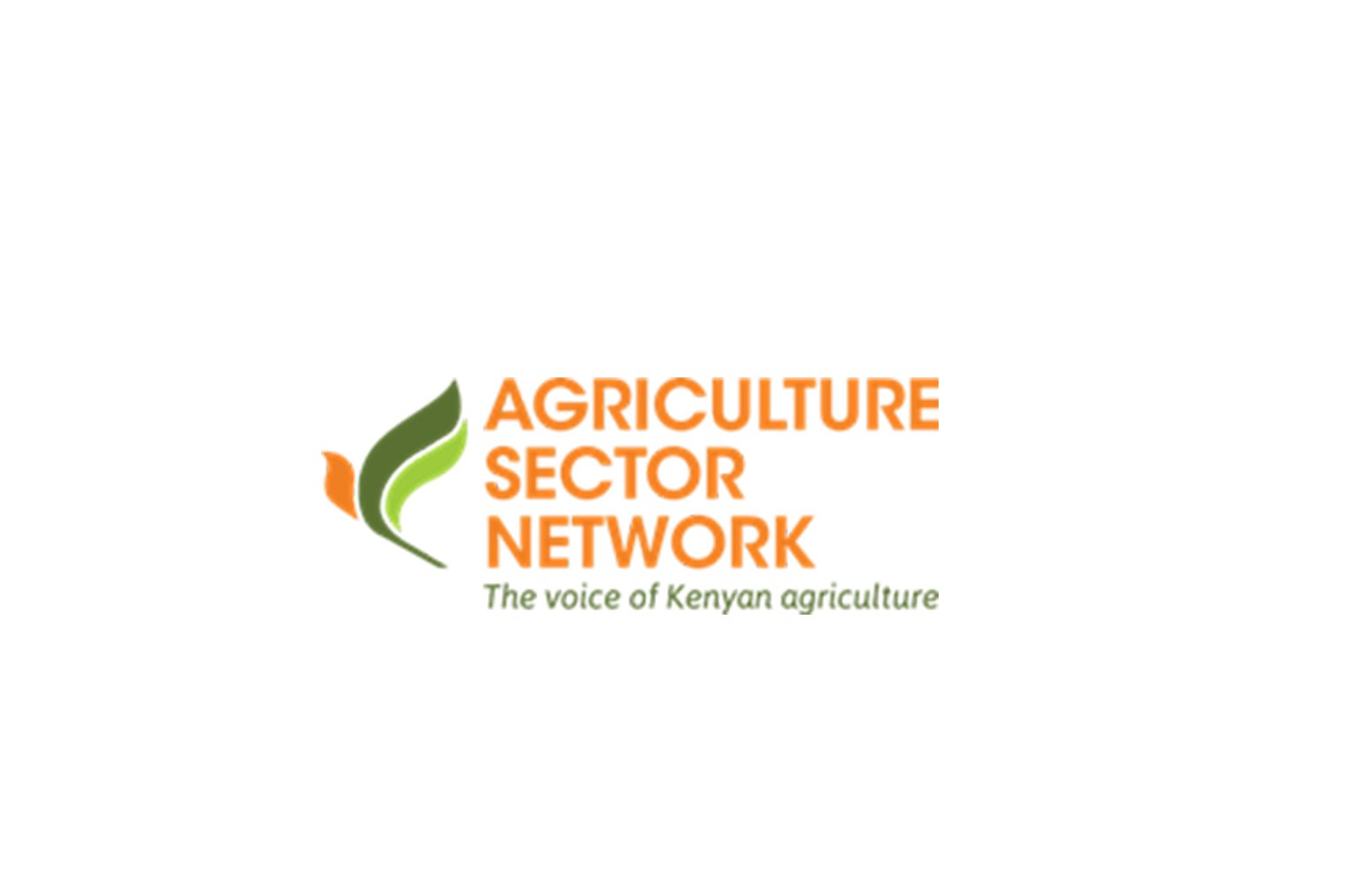Background
Agriculture is at the centre of livelihoods, revenues, food, and nutritional security, as well as trade and regional integration for countries in the East African region. The sector plays a key role in Kenya’s economy, contributing to about 33% GDP, 60 % total export earnings, 45% government revenue and 70% rural employment. Despite the great potential, the sector is characterised by decreasing productivity and competitiveness as several constraints that limit inclusive participation in regional trade, limiting the great economic benefits that it is supposed to achieve.
With vast human, natural and technological resources, Kenya is positioned as a leader in agriculture trade in the region. The key question is how Kenya can consolidate its comparative advantage as a regional agricultural powerhouse through addressing issues of productivity(in terms of capacity, standards and quality), cost of doing business or trading, eliminate trade barriers and strengthening the private sector to build its competitiveness in the EAC, COMESA and continental trade.
It is against this background that the USAID Policy LINK project, as part of its “Strengthening Competitiveness in Regional Agricultural Trade” (SCRAT) activity, carried out a competitiveness analysis focusing on evidence and learning, to identify critical elements for agricultural trade competitiveness and propose solutions or alternative approaches to solve key challenges in regional trade. The countries of focus for the Study included Burundi, Democratic Republic of Congo, Ethiopia, Kenya, Rwanda, South Sudan, Uganda, and Zambia.
At country level, Agriculture Sector Network (ASNET), Tegemeo Institute of Agricultural Policy and Development (TEGEMEO) and Kenya Association of Manufacturers (KAM) have also carried out various analyses on agriculture value chain, agro-processing and manufacturing assessing the various constraints, policy and institutional issues affecting agriculture competitiveness issues in Kenya. The findings of these collective studies will inform a series of national dialogues in select countries in the region that will culminate in a regional policy dialogue that will provide a platform for further regional discourse and joint solutions to increase intra-regional agricultural trade and competitiveness.
Desirous of driving change and strengthening concerted approaches to addressing agricultural trade competitiveness in Kenya, the above stakeholders will be convening the Agricultural Trade Competitiveness Dialogue (the Dialogue), as part of a series of engagements with national stakeholders for discussion, consensus, and learning, based on the key objectives below.
Objectives
The Dialogue aims to reflect on and prioritise critical agricultural trade competitiveness issues affecting the country. The Dialogue will also enable stakeholders to commit to strategic actions for improving trade competitiveness, informed by evidence from recent studies (from the convening partners) and taking national economic priorities into consideration.
The country dialogue will ensure that key study findings and recommendations are validated, and issues are contextualized and aligned with country dynamics, uniqueness, and agricultural strategies. The dialogue will focus on Kenya’s preparedness to actively participate competitively in increased intra-regional trade. Specifically, the dialogue will provide an opportunity for key national stakeholders to:
Reflect on the implications of the findings and what this means for agricultural trade, investment, programming, and action in Kenya
Build consensus around critical issues that require action and what needs to be done to trigger systems level change in Kenya to improve the country’s trade competitiveness and realize its national agenda.
Build consensus around priority value chains (that have the potential to drive competitiveness) and to prioritize country level strategic intervention, approaches, joint actions, and partnerships to address systemic issues in the short term, medium term, and long term.
Agree on specific tangible actions to move forward with (to inform programs and investment) based on evidence generated through the analyses.
Initiate a platform for future broader stakeholder collaboration, dialogue and action to address trade challenges affecting Kenya informed by evidence.
Arrange for the development of an action plan and advocacy agenda, to guide implementations or follow up on the specific action areas – after the platform has been established. Agree on a pathway for developing the action plan to follow up on actions identified during the national dialogue.
Continuous Engagement
The initial dialogue will take place on 17th November 2021, during which a tentative roadmap will be agreed upon by all stakeholders for continuous engagement that will include:
Consolidation of key actions that are currently being undertaken, actions that need to be taken and highlighting the gaps that remain.
Agreement on the collaborative approach for addressing key actions and gaps.
Continued planning, review, and taking stock of the agreed actions to monitor and strengthen implementation.
Agreement on the mutual accountability framework that will guide the implementation process.
The overall approach to facilitating the virtual meetings will be to use open, interactive and participatory methodology to reference the evidence from the study and options presented, to draw on the participants’ knowledge towards in/validating the findings and proposing key recommendations or actions to address the challenges.
Expected Outcomes
Consolidation of critical factors that drive agricultural trade competitiveness in Kenya.
Prioritization of country level interventions and identification of specific partners that can drive the implementation of specific solutions and approaches that drive systemic changes in support of increased regional trade and agriculture competitiveness. This can be at a preliminary level, informing the development of action plans/ follow up actions.
Create or inform ongoing agricultural trade fora/platform for private sector actors to engage with policy makers for advocacy, partnerships and concerted efforts on policy and other measures to advance competitive trade. This will also include actions towards the development of an advocacy plan, and national strategies to address the key issues from this meeting.
Participants
The event will bring together decision-makers, leaders, practitioners and experts from the public, private and development sectors in Kenya. These include key identified stakeholders as per the list below:
Key government ministries, departments and agencies.
Development partners supporting agriculture and trade.
Country and regional business, as well as sector associations (agriculture and trade).
Agribusiness apex organisations and select private sector actors across key value chains.
Public and private trade promotion and trade facilitation agencies/ institutions, financial services, technical services and ancillary services providers.
Research institutions/think tanks.
View Speaker Bios
Agenda
8:30 – 9:00 a.m. | Registration
9:00 – 10:15 a.m. | Reflections on Kenya’s agricultural trade competitiveness
The presentation will offer an insight into the overall landscape of Kenya’s competitiveness in agricultural trade, providing evidence and setting the tone for the Public-Private Sector Dialogue.
Kenya Association of Manufacturers
10:15 – 10:25 a.m. | Private sector perspective on trade competitiveness
ASNET
10:45 – 10:55 a.m. | Measures in Place for Enhancement of Regional Livestock Trade and Beyond
PS Harry Kimtai
Principal Secretary, State Department of Livestock
10:55 – 11:05 a.m. | Strategies to address declining productivity, value coordination and investment for competitiveness in the region and in international agricultural trade.
Prof. Hamadi Boga
Principal Secretary, State Department of crop Development and Research
11:05 – 11:15 a.m. | The strategy for operationalizing the Ministry of Trade’s Industrialization and Trade (export) Policy to ensure that Kenya remains competitive and a leader in intra-regional trade.
Amb. Johnson Weru
Principal Secretary, State Department for Trade and Enterprise Development
11:15 – 12:15 p.m. | Public – Private Sector Dialogue: Challenges and opportunities for Kenya’s regional trade competitiveness
This session will involve a public-private sector dialogue, including an interactive session with the online audience, to arrive at quick win actions that need to be implemented by all respective stakeholders with regards to the prioritised challenges.
12:15 – 12:35 p.m. | Keynote address
Dr. Kevit Desai
Principal Secretary, State Department of East African Community (EAC)
12:35 – 12:45 p.m. | Way forward/Actions and Commitments
This session will summary key actions identified in the discussion, and allow for participants to identify who can support what actions
12:45 – 1:00 p.m. | Concluding remarks and official close of the dialogue
Moderator
1:00 p.m. | Lunch
Important Contacts
Queries should be addressed to: Rita Wambui, ASNET rita@asnet.or.ke & Edwin Odhiambo, USAID Policy LINK Edwin_Odhiambo@dai.com
About Convening Partners
-

Agriculture Sector Network (ASNET)
ASNET is the umbrella body of the agriculture private sector actors in Kenya. It is the Agriculture arm of KEPSA. It was formed through a partnership of KEPSA, KNCCI, KAM, SDG Partnership Platform of the United Nations with support from BAF, Elgon Kenya Limited, like minded business associations, partners and other stakeholders. ASNET membership is drawn from Agriculture associations across the value chains, MSMEs, Corporates, NGOs/Civil Society, Apex Farmer Organizations, Cooperatives and Individual famer membership. ASNET’s strategic roles are: (i) To Enhance sector-wide coordination and of the often-fragmented agriculture sector, (ii) To engage in Policy and Advocacy for an enabling business environment, (iii) Agriculture value chain development that promotes increased productivity, competitiveness and attracts investments into the agriculture sector, and (iv) To inculcate Inclusivity in the Agriculture Sector especially for women, youth and the vulnerable while maintaining a lean Secretariat for coordination purposes.
-

Kenya Association of Manufacturers (KAM)
KAM is the leading voice of manufacturing and value-add industries in Kenya since its establishment in 1959. The Association is committed to securing the socio-economic well-being of Kenyans, and consequently, alleviates inequality in the community. This is through uKAMilifu, which integrates Environmental, Social and Governance (ESG) factors into the Association’s role as the leading voice of manufacturing and value-add industries in Kenya. uKAMilifu seeks to demonstrate industry’s wider role in complementing Government’s initiatives towards driving development. Over the years, KAM’s work as a dynamic, vibrant and credible voice that unites industrialists, has seen the Association’s Membership base grow to over 1,400 industries cutting across 14 sectors. We remain at the forefront in the development of solutions and reimagining both the current and future manufacturing landscape in Kenya
-

Tegemeo Institute of Agricultural Policy and Development
Tegemeo Institute of Agricultural Policy and Development, Egerton University, is a leading provider of evidence and knowledge for accountability and learning, to catalyse agricultural and rural sector transformation. The Institute’s research is organized around five thematic areas: transformation of the agricultural sector for inclusive growth and development; enhancing rural service delivery in a devolved and dynamic institutional setting; building resilience in the context of climate change; unlocking the potential for regional integration for trade and food security; and, provision of Measurement, Learning and Evaluation (MLE) services.
-

Kenya National Chamber of Commerce and Industry (KNCCI)
The Kenya National Chamber of Commerce and Industry (KNCCI) is a membership based trade support institution (TSI) working to protect commercial and industrial interests of Kenyan business community. KNCCI advocates for the creation of a favorable commercial, trade and investment environment that supports enterprise expansion. The membership of KNCCI constitutes small, micro enterprises (MSEs), medium and large enterprises.
-
-

Policy LINK
Policy LINK is a global Feed the Future program to advance leadership and collaboration for better policy systems. Policy LINK supports individuals and organizations to work better together by strengthening leadership, collaboration, and learning. We do this by centering the people driving policy change, the platforms that bring them together, and the participatory learning that they generate.


